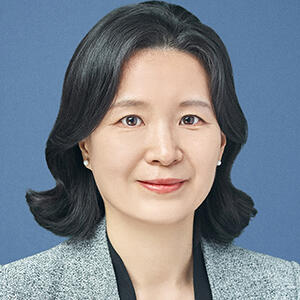Unpacking the Crisis in Xinjiang: James Millward on China's Assimilationist Policies and U.S.-China Engagement
As reports of leveled mosques, detention camps, and destroyed cultural and religious sites in China's Xinjiang province emerged in the mid-to-late 2010s, the world took notice of the Chinese Communist Party's (CCP) flagrant oppression of Uighur Muslims and other minorities. Under the Xi Jinping administration, the Xinjiang region in northwestern China has experienced what is perhaps the greatest period of cultural assimilation since the Cultural Revolution. This massive state repression represents a primary research focus for Dr. James Millward, Professor of Inter-societal History at the Walsh School of Foreign Service at Georgetown University, who joined both APARC's China Program and the Stanford History Department as a visiting scholar for winter quarter 2022.
Millward's specialties include the Qing empire, the silk road, and historical and contemporary Xinjiang. In addition to his numerous academic publications on these topics, he follows and comments on current issues regarding Xinjiang, the Uyghurs and other Xinjiang indigenous peoples, PRC ethnicity policy, and Chinese politics more generally. We caught up with Millward to discuss his work and experience at Stanford this past winter quarter. Listen to the conversation:
Sign up for APARC's newsletters to receive analysis and commentary from our scholars and guest speakers.
Aggressive Assimilating Thrust
Millward emphasizes the importance of documenting the scope and scale of the crisis in Xinjiang. "What's happened in the last four or five years in Xinjiang is of great global importance and interest to people," he says, and although it is still early to write the history of this period of repression, "it's important at least to try and get an organized draft of it down and to try to begin to interpret rather than just narrate the litany of things going on: the camps, the digital surveillance, forced labor, birth depressions, and try and put it all into some kind of framework where we can understand it."
China’s crackdown on Uyghur Muslims and other minorities in Xinjiang is part of aggressive intolerance of cultural and political diversity that is emerging as a central feature of Xi Jinping’s tenure, explains Millward. The shift in the CCP's assimilationist policies constitutes a complete "reversal of what had been an earlier approach to diversity in China," which allowed for 56 different nationalities to have regional autonomy. His aim is to "point out a really aggressive assimilating thrust under the Xi Jinping regime [...] and then also to look more clearly at settler colonialism in Xinjiang."
To learn more about the historical context of current events in Xinjiang and how to understand them against contemporary Chinese politics, tune in to Millward's public lecture of February 2, 2022, “The Crisis in Xinjiang: What’s Happening Now and What Does It Mean?”
In this talk, Millward explains how PRC assimilationist policies, if most extreme in Xinjiang, are related to the broader Zhonghua-izing campaign against religion and non-Mandarin language and perhaps even to intensified control over Hong Kong and efforts to intimidate Taiwan.
U.S.-China Cooperation Amid Strained Ties
The Xinjiang crisis has affected how the United States views China, bringing an unexpected unity to the usually-polarized American foreign policy arena. "The Xinjiang issue has contributed to the broad-spectrum feeling in the American political sphere that engagement with China has failed," notes Millward. The parallels between China's repression of minorities and some of the worst events in the 20th century in Europe "have brought together the political sides in America and rallied them around a much stronger anti-China stance," he says.
From Millward's perspective, however, it is not only possible but also necessary for the United States to act on Xinjiang and press China on its human rights record while cooperating with China on other issues. "This is the art of diplomacy, you have to compartmentalize and deal with different issues, particularly with two countries as large as the United States and China." In Millward's view, areas pertinent to U.S.-China collaboration are varied and transcend global challenges such as climate change or pandemics. Those are simplistic dichotomies," he says. "We have 300,000 Chinese students in our universities and we welcome them and learn a lot from them [...] We benefit from Chinese expertise in all sorts of ways."
Millward spent a productive winter quarter at APARC. Returning to Stanford as a visiting scholar provided him a unique opportunity to reconnect with his past on The Farm and survey all that has changed in the years since he completed his doctorate under the tutelage of the late Professor Harold Kahn. "The trailer park where I lived as a first-year graduate student is no more, and I couldn't even find the footprint of where it was."

Read More
APARC Visiting Scholar James Millward discusses PRC ethnicity policy, China's crackdown on Uyghur Muslims and other minorities in Xinjiang province, and the implications of the Xinjiang crisis for U.S. China strategy and China's international relations.



 Ambassador Rahm Emanuel; courtesy U.S. Embassy Tokyo
Ambassador Rahm Emanuel; courtesy U.S. Embassy Tokyo





















